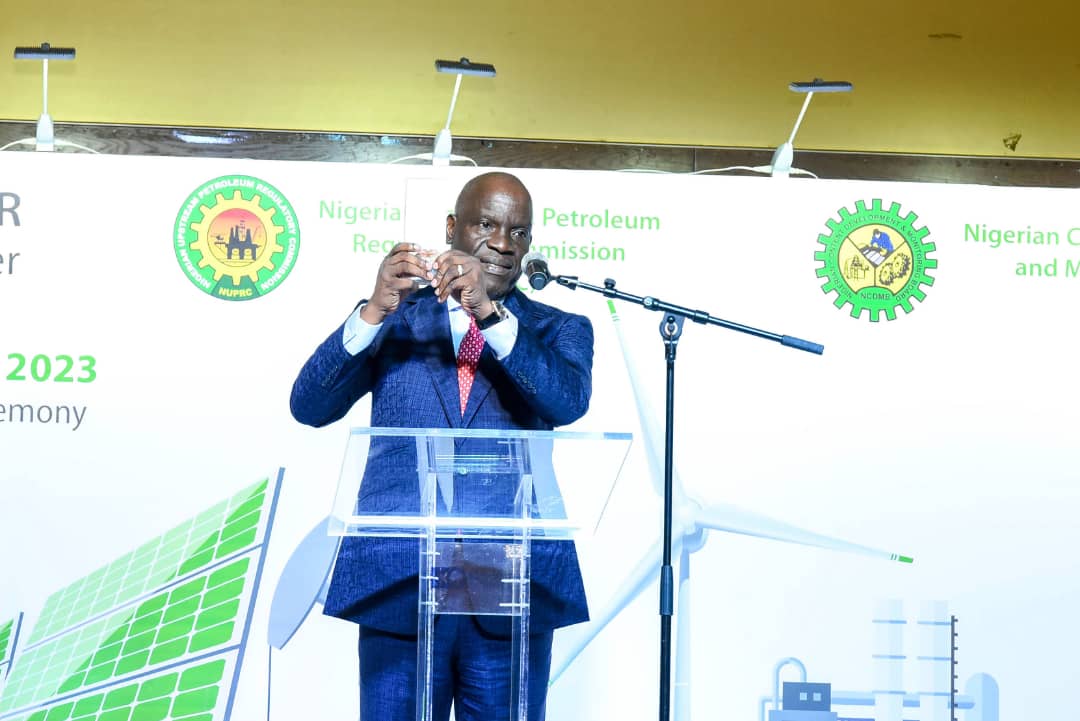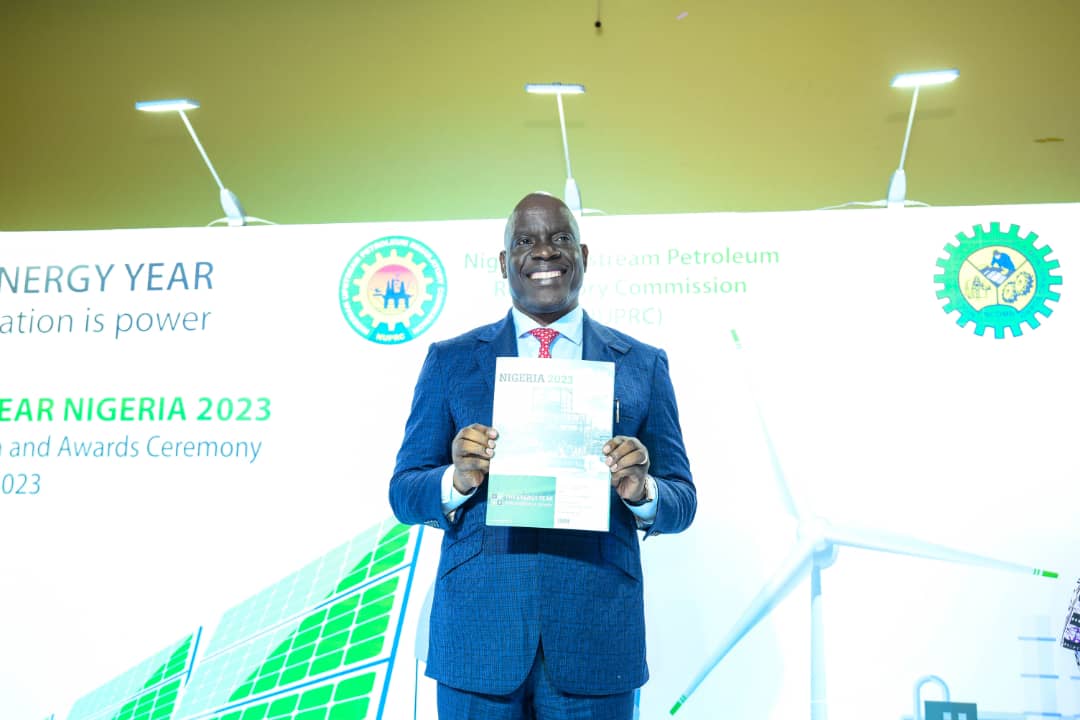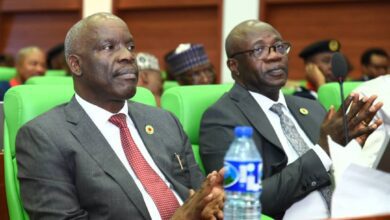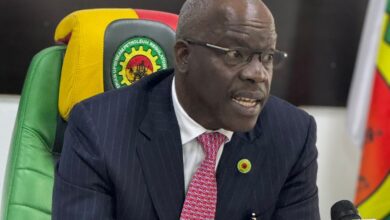“Nigeria Must Evolve Innovative Measures To Mitigate Effect Of Energy Transition”

The Commission Chief Executive, Nigerian Upstream Petroleum Regulatory Commission (NUPRC), Engr. Gbenga Komolafe has tasked the country on innovative measures to mitigate the effect of energy transition.
Engr. Komolafe gave the task at the Energy Year Nigeria 2023 Book Launch and Awards Ceremony on Thursday in Lagos.
He noted that the energy transition has resulted in the defunding of oil and gas projects, therefore, there was a need for innovative measures to mitigate the effect on a developing country like Nigeria.
He said, the “global energy transition program would undoubtedly affect Nigeria’s Gross Domestic Product (GDP), which stands at $477.39B for 2022 because the economy depends largely on the revenues from the oil sector”.
He said, “between 2014 and 2022, about 74% CAPEX has been lost due to defunding of the fossil fuel. The defunding of the fossil fuel impacts negatively on production with direct implication on the federation revenue for an oil-dependent economy like Nigeria”.
Giving further details on his position, he said, the International Energy Agency’s (IEA’s) latest World Energy Investment report indicates that “investment in clean energy technologies is significantly outpacing spending on fossil fuels …”.
He said, the report also revealed that the annual global investments in clean energy sources and technology specifically relevant to the energy transition increased by 31 percent (31%) between 2021 and 2022, representing the largest annual investment increase since 2010.
The NUPRC boss said, governments and energy companies are supporting major R&D and demonstration projects in key areas such as low-emission hydrogen-based energy, lithium-ion and lithium-free batteries for electric vehicles, CCUS, and other critical energy technologies.
Speaking on mitigation measures, Engr. Komolafe said, African Market integration leveraging a population of about 1.46 million consumers compared to the combined population of America and Europe of about 1.1 million consumers must be annexed.
He said, the country could also optimize the value chain of its crude oil by developing the domestic refining capacity with multiplying effect on the midstream derivatives such as the petrochemical industry, methanol, ammonia production, and LPG that would spur industrialisation base, and improve revenue for economic development.
The CCE said, Innovative approach for funding fossil fuel development in the Nigerian upstream was more compelling now than ever as a mitigation measure against the onslaught of the energy transition.

He added that “alternative funding mechanism must be sought and pursued vigorously to assuage the effect of defunding of fossil fuel. Such mechanisms could include pre-export financing, project financing, oil for a service agreement, and prioritisation of gas development being the adopted transition fuel”.
He said, “focus must be on ways to increase production at reduced unit cost. Embrace improved drilling techniques, enhanced oil recovery, and improved oil recovery methods should be leveraged. Continuous data gathering and studies to optimise discovery need to be pursued to reduce the chances of failure and downtime during drilling.
Initiatives of the NUPRC”.
He said, “as the world is fast gravitating towards digitization and automation in all spheres of human endeavours, we must not be left behind. Embracing technologies like Artificial Intelligence, big data analytics, and the Internet of Things, will revolutionize our operations, enhance safety, and optimize resource utilization”.
Komlafe said, “at the NUPRC, we have continued to be innovative and demonstrated commitment to digitization and automation of all our operational and regulatory processes in line with our core values of professionalism, responsiveness, ownership, and integrity to reduce inefficiencies and optimize processing time cycle in our operations.
“To this end, we have embarked on the optimization of the Enterprise Data Warehouse (EDW) to improve our workflow processes; the Revenue Ledger and Information System (RLIS) portal for companies to submit all local and foreign royalty payments; the National Balance of Payment portal for reporting inward and outward direct investment associated with crude oil export; Asset Management Web Portal (AMWP) for Marginal Fields and petroleum facilities, and many others that are intended to improve delivery on our mandate as provided in the PIA, 2023.
“Accordingly, we are embracing and adopting new technologies and advanced recovery techniques to unlock some identified stranded or bypassed oil and gas resources to increase our reserves and ramp up production. We have commenced the use of smart completion to enable commingling of production from different reservoirs to increase production.
“Collaboration is key to fostering innovation. The government, regulatory bodies, oil and gas operators, service companies, and other stakeholders, must work hand in hand to create an ecosystem that promotes idea-sharing, transparency, and mutual support. We must encourage the establishment of partnerships, consortiums, and joint ventures, to tackle complex challenges collectively”, he said.






